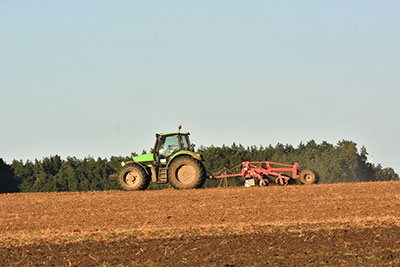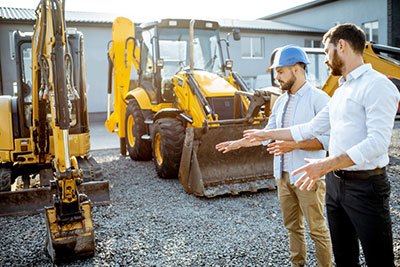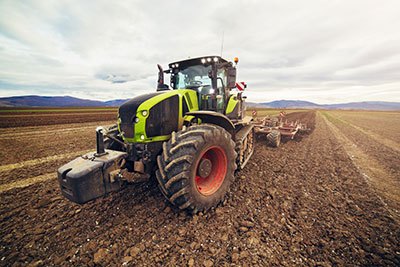Are you feeling frustrated and regretful after buying a new tractor that isn’t living up to your expectations? It can be an overwhelming prospect when you’ve made a big purchase only to discover some major shortcomings.
Fortunately, this guide will provide essential knowledge about different ways you can approach addressing these issues and make the most of your machine.
Find out what steps should be taken if something has gone wrong with your tractor, when you’re best off selling it, or how to handle claiming warranty rights!
Take away key points:
- You cannot return the wholesome machine you’ve bought, but there are alternatives to prevent this
- Ensure you know all your needs in advance to buy desired machines
- Know all deal points, the delivery cost, and other crucial factors for the best bargain
Table of Contents
- What to do if I dislike my tractor equipment? Best solutions!
- What happens when I buy a tractor?
- Can I return the tractor equipment after I bought it?
- How do experts value a used tractor?
- Determining the value of the used equipment
- Extra tips to determine the value of your tractors
- What to do when I discover I don’t like your construction equipment?
- What to do to choose the right tractor for my needs?
- Preventing buying a tractor you don’t like
- Improving the condition of a tractor you’ve bought, although you don’t like it
- What to do with purchased tractors that you dislike?
- Conclusion
What to do if I dislike my tractor equipment? Best solutions!
If you’re not very fond of your agricultural machine and demand alternatives for compensation, or other trade-ins, you can refer to our guide below.
We will present a few valuable tips to ensure the best solution for your purchase and machine if something goes wrong.
What happens when I buy a tractor?

When you buy a tractor, especially with a low-rate program financing it, the transaction is difficult to undo. If the machine does not fit your needs and you want to trade it in, it will need to be sold at a considerably lower price than its cost.
Since the used machine is considered ‘used equipment‘ despite having a few hours on it, buyers will often opt for a new one instead, meaning the used machine may stay on the lot for a while.
Furthermore, someone else cannot take over your payments as no financing program allows that for used equipment. Many farmers and other customers must start a new low-rate program financing process.
Can I return the tractor equipment after I bought it?
Yes, you can return the gear that you bought if you don’t like it. According to Tractor Supply’s Return Policy, you have 30 days from the date of purchase to bring items back for a full refund to your original form of payment.
You can take your gear back to any Tractor Supply store for an immediate refund or exchange it for something else within 30 days of your original payment.
If you return gear longer than 30 days ago or have no receipt, then the company has sole discretion over any returns you make and may issue a store credit instead of a refund.
Other retailers doing a full refund include The Home Depot, Rural King, and others.
How do experts value a used tractor?
As soon as customers purchase machines, it typically depreciates by 30%. For example, if the dealer made a 15% margin on your $30,000 tractor, then its immediate value would be reduced to $25,500.
If you want to trade in your tractor and the dealer wants to get their 15% profit back (i.e. trading at wholesale and reselling at retail), they will generally only offer you 15% below your already discounted tractor value. This means you will have to take a $9,000 hit on the deal for your used equipment.
Trading in your tractors may not always be the best option for an operator who has financed at low rates because not only are you taking a loss in value, but also due to the warranty clock ticking away while deciding.
Determining the value of the used equipment

If you are looking to buy or sell a used tractor, it is important to know what the actual value of the tractor is. There are several ways to determine the value of a used tractor.
The first step is to visit the manufacturer’s website for your specific tractors and use their dealer locator to find the closest dealer. Contacting your local dealer can provide you with valuable information about current market values for used tractors and other machines in your area.
You can also consult a used tractor worth calculator online, which can give you an estimated ballpark figure for pricing decisions and other selling options.
Additionally, factors such as make, model, engine type, age, and size of the tractors will all affect their price. Attending a farm machinery auction results in getting a close figure on the great condition of a tractor since prices tend to be regional.
Finally, it is important to remember that the sale price isn’t always equal to the actual worth of used equipment. Factors such as condition and recent trends in trade and sales should be taken into consideration when determining what your agricultural equipment is worth now.
Extra tips to determine the value of your tractors
When dealers acquire a tractor from an auction, they may need to invest $200-300 for reconditioning and replacing any necessary tractor parts. This amount is added to the original purchase price when calculating the price offered to a retail customer. The dealer will generally add 15 to 30% for the good dealership and you decide whether or not you will participate in the trade.
Knowing the fair market value of a tractor at auction can give you an edge during selling and buying negotiations. The trading course will provide you with a good indication of how much room there is for bartering and finding the best solution for your machine.
Keep in mind however that if it’s a well-maintained low mileage tractor, the dealers may be less likely to budge on their offer since they won’t have put too much money into it before reselling the machine.
Ultimately, it’s important to consider pricing while looking into purchasing a tractor but also focus on making sure that it’s the right one for you.
What to do when I discover I don’t like your construction equipment?
When purchasing construction equipment, it is important to ensure that you are making the right decision. There are several tips to help you make the right purchase, such as:
– assessing your business reality,
– getting an external point of view,
– investing in digital technologies,
– creating a list of needs and budgeting for each item,
– researching average costs of items,
– asking for expert advice,
– considering your team’s skills and vetting suppliers carefully.
Additionally, it is important to inspect the equipment before purchasing and research its maintenance record to avoid future complications and operate well.
However, even if you follow all these steps there may be times when you purchase construction equipment and then realize it isn’t what you expected. In this case, it is important to consider all your options before you make a final decision and pay for the wrong tools.
Depending on the situation you may be able to return, replace or exchange the equipment for something more suitable. Alternatively, if returning or exchanging isn’t an option you could sell the equipment or donate it to charity.
What to do to choose the right tractor for my needs?
When it comes to choosing the right tractor for your needs, there are a few things you should do in advance.
First, take into consideration the size of your property and select a tractor accordingly.
It is also important to consider your budget and determine how much you can afford to pay for a tractor.
Additionally, look for a cab with large glass windows for optimal visibility when operating the tractor.
You should also consider the land fragmentation and horsepower requirements of your farm when selecting a tractor. Ensure the transmission system fits your needs and that the tires are also in good condition.
Finally, make sure that the dealer and manufacturer have a maintenance or service center near you so that you can get any repairs or maintenance done quickly and efficiently. New Holland, John Deere, and other manufacturers have various channels for delivery, and you can always contact them to find the best course if you’re a potential buyer.
Preventing buying a tractor you don’t like

Buying a tractor is a big decision and it’s important to make sure you get the right one for your needs. To prevent buying a tractor you don’t like, there are several things to consider before making your purchase.
First, think about the type of tractor that best suits your needs. Compact utility tractors are great for smaller operations while utility tractors are better suited for larger tasks. Consider the acreage you will be working on and what types of operations you need the tractor for.
Next, consider what tasks you need the tractor to perform and prioritize them according to importance. This will help determine which features and specifications are necessary to meet your needs. You will also know whether you need more or less power, transmission type, and horsepower, and decide the best type for your needs.
Third, research different models of tractors and compare their features side by side. This will help narrow down your choices and make sure you get the best value for your money.
Implements are also crucial, as you might need a three-point hitch for a backhoe, grass mower, loader, trailer, truck, etc. So, tractor attachments are also a critical part of finding the best tractor for your needs. They will help you with the best form without extra costs if you determine you don’t like the tractor gear later.
Finally, visit a dealership or two in person to test out different models before making a final decision. This will allow you to ask questions and get a feel for how each model operates so that you can make an informed decision about which one is right for you.
By following these steps, you can ensure that you buy a tractor that meets all of your needs and prevents any buyer’s remorse down the road!
Improving the condition of a tractor you’ve bought, although you don’t like it
If you have recently purchased a tractor and are not satisfied with its condition, there are several steps you can take to improve it.
Firstly, make sure to perform regular maintenance on the tractor. This includes cleaning dust and debris from radiator screens, lubricating internal parts, replacing worn-out tires and lights, and checking the exhaust system.
Additionally, ballasting your tractor with weight can help increase traction and reduce fuel consumption.
Finally, if you are looking to buy a second-hand tractor, consider key items such as size, terrain, and drainage when making your decision. With these tips in mind, you can ensure that your tractor is in top condition for years to come.
What to do with purchased tractors that you dislike?
If you have purchased a tractor that you dislike, there are several options for disposing of it.
The first is to donate the tractor to a local charity or nonprofit organization. Many charities will accept used tractors and may even offer pickup services.
Another option is to sell the tractor on a second-hand market such as eBay or Craigslist. This can be a great way to recoup some of your money while getting rid of an unwanted item.
Finally, if all else fails, you may need to hire a professional disposal service to take care of the tractor for you.
However, you must know that its worth will be lower even though you have an extended warranty period and you might be the rightful owner. So, spend your time researching a bit to save yourself the trouble with wrong decisions.
Conclusion
You may be stuck with a machine that doesn’t match your expectations and needs. However, there are several ways to work around this dilemma.
Taking the time to research alternatives could help you find an option that meets your requirements.
Additionally, considering different options such as renting or buying a more modern model will allow you to make informed decisions about what is best for the future of your land.
